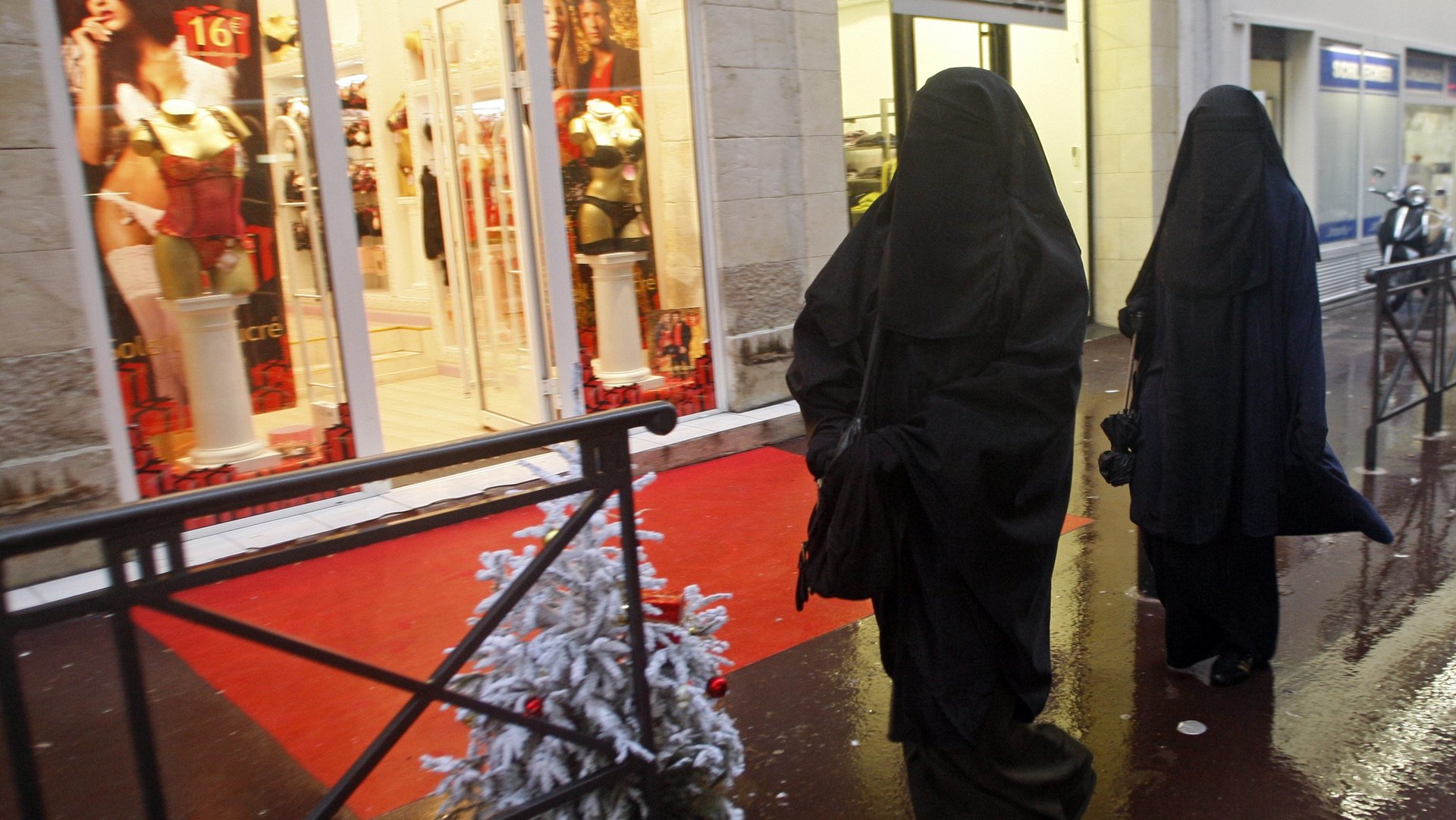Yet another European country is on the verge of approving a burqa ban
The Netherlands has become the latest country to pass measures banning the face veil worn by Muslims, sometimes referred to as a niqab or burqa, a move which coincides with a surge of anti-Muslim sentiment across Europe.


The Netherlands has become the latest country to pass measures banning the face veil worn by Muslims, sometimes referred to as a niqab or burqa, a move which coincides with a surge of anti-Muslim sentiment across Europe.
The Dutch lower parliament on Tuesday voted overwhelmingly in favor of a ban on “face-covering clothing” in certain public places such as government buildings, public transport, schools and hospitals. The proposal, which also restricts ski masks and helmets, requires approval by the upper house of parliament to become law. If it passes, violations could result in a fine of 405 euros ($430).
“The bill does not have any religious background,” said Dutch prime minister Mark Rutte when it was first introduced in 2015. He added that it would not apply to people in the street, but only “in specific situations where it is essential for people to be seen” or for security reasons.
But opponents say that the measure is clearly aimed at Muslims—a view shared by Geert Wilders, the leader of the increasingly popular far-right Party for Freedom, which favors legislation calling for the complete “de-Islamification” of the Netherlands. Critics say Rutte is pandering to Wilders’ voters in an attempt to stave off his party in the upcoming national election in March. Wilders pledged to extend the ban if his party prevails.
While estimates suggest that only a few hundred women in Holland actually wear burqas or niqabs, the issue has become a flashpoint in a larger debate about Islam and the integration of Muslims in European societies. If the measure becomes law, the Netherlands will become the fourth European country to institute some kind of burqa ban. Belgium, Bulgaria, and France all have similar laws on the books, despite challenges from critics suggesting they curtail religious freedom.
There are also currently movements in Germany, Italy, Switzerland, and Norway to introduce restrictions on burqas and face veils. The Swiss parliament narrowly voted in favor of a national burqa ban in September, though the measure has yet to become law. In Norway, the education minister is seeking to implement restrictions on the face veil in schools and universities, while Germany’s interior minister has pledged his support for a full ban. An August poll indicated that 57% of Britons favored banning the burqa, though no such law currently exists in the UK.
The increase in such proposals come alongside a rising tide of anti-Islam sentiment in Europe. A Pew Research survey from July suggests that unfavorable opinions of Muslims jumped from the previous year in several European countries, including the UK, Spain and Italy.